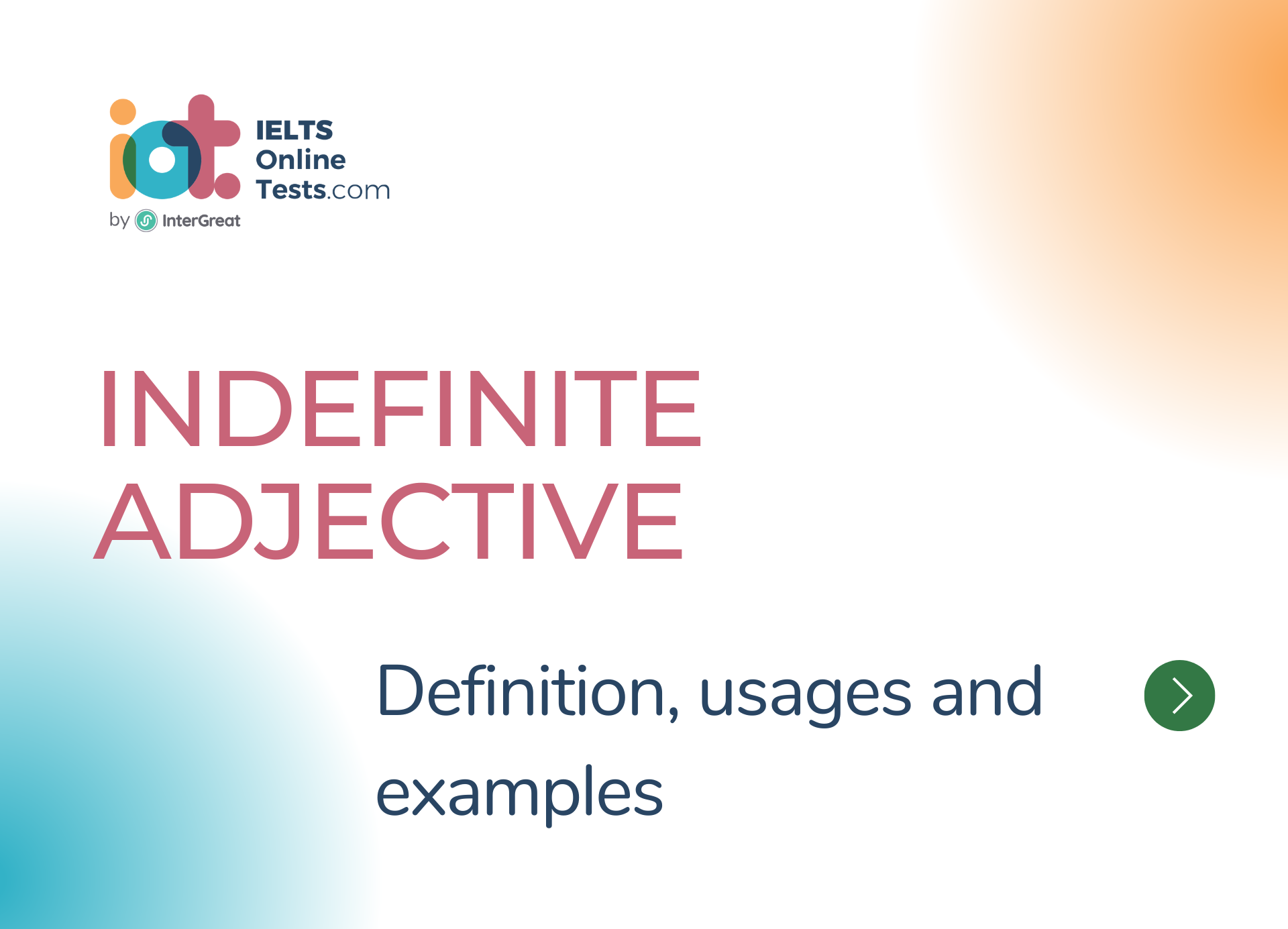
Indefinite Adjective definition, usages and examples
Indefinite adjectives are used to express a non-specific or unidentified quality or quantity of a noun. They provide a general idea rather than a precise or definite description.
Here are some key points about indefinite adjectives:
Definition: Indefinite adjectives modify nouns by expressing an unspecified or general quality, quantity, or number.
Types: Some common indefinite adjectives include "some," "any," "several," "few," "many," "much," "most," "all," "each," "every," "no," "another," "other," "various," and "certain."
Examples:
- Some: "She bought some flowers for the party."
- Any: "Do you have any suggestions?"
- Several: "I saw several birds in the park."
- Few: "There are only a few seats left."
- Many: "There are many books on the shelf."
- Much: "He has much experience in that field."
- Most: "Most people enjoy traveling."
- All: "All students should attend the meeting."
- Each: "Each student received a certificate."
- Every: "Every child loves ice cream."
- No: "There is no milk in the fridge."
- Another: "Can I have another piece of cake?"
- Other: "We need to find another solution."
- Various: "The store offers various products."
- Certain: "I have a certain feeling about this situation."
Non-Specificity: Indefinite adjectives do not specify exact quantities, qualities, or identities of the nouns they modify.
- Example:
- "Some books" (referring to an unspecified number of books).
- "Many people" (referring to an unspecified large number of people).
- Example:
Quantity: Indefinite adjectives can indicate a non-specific or undetermined amount or number.
- Example:
- "I have some money,"
- "There are many options to choose from."
- Example:
Generalization: Indefinite adjectives are often used to make general statements or describe a broad category of nouns.
- Example:
- "All dogs are loyal,"
- "Some students enjoy studying."
- Example:
Plural Agreement: Indefinite adjectives usually agree with plural nouns.
- Example:
- "Several houses" (plural noun).
- "Many cars" (plural noun).
- Example:
Use in Questions: Indefinite adjectives are commonly used in questions to inquire about non-specific information or possibilities.
- Example:
- "Do you have any questions?"
- "Are there any other options?"
- Example:
Comparative Forms: Some indefinite adjectives have comparative forms to compare non-specific quantities.
- Example:
- "More," "less," "most," "fewer."
- Example:
Indefinite adjectives provide a general idea or description without specifying precise quantities or qualities. They are useful when the exact details or specifics are not necessary or unknown. By using indefinite adjectives, you can express non-specific information and make general statements about nouns.




